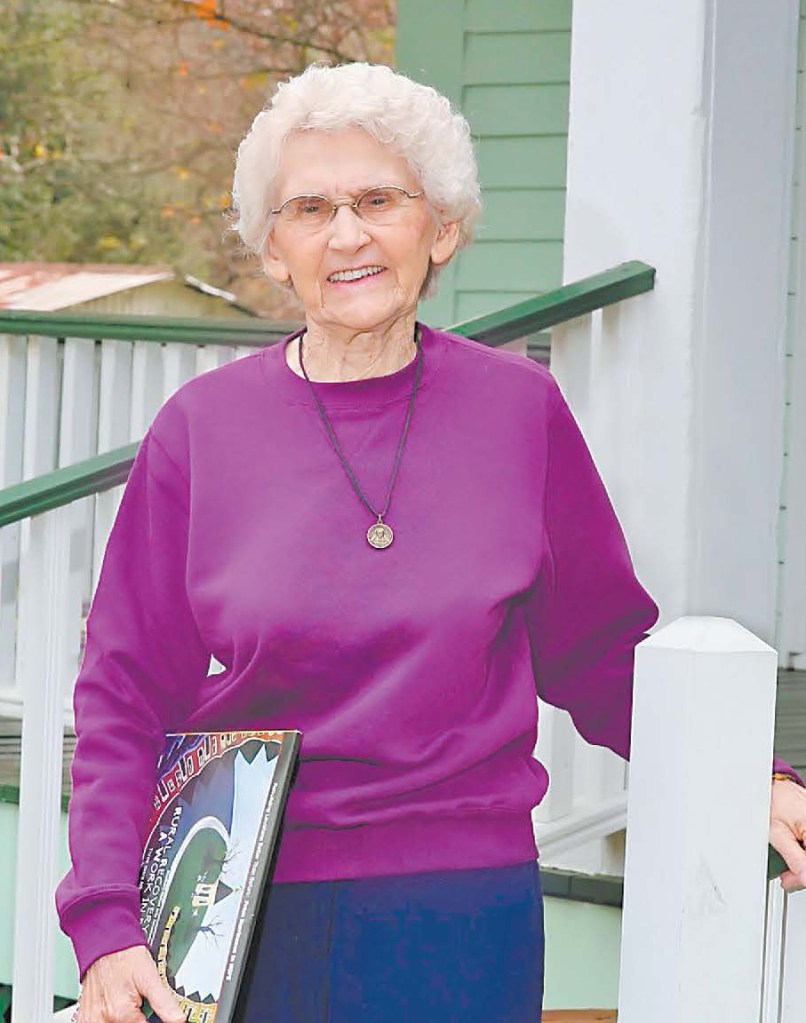Meet the nun dedicated to community, justice and the environment
Published 7:00 am Friday, February 7, 2020

- Sister Helen Vinton, who worked with the Southern Mutual Help Association, died on Aug. 5 at the age of 91.
The images of nuns that many Catholics remember from their youth are a far cry from many modern-day nuns. Today there are sisters all over the world in many unique missions, from highly-skilled scientists and traveling counselors for circus workers to nurses and presidents of colleges. And a great number have been part of the secular environmental movement long before Pope Francis released his 184-page papal environmental message in 2015 calling on Christians to take action to protect the Earth. Among them, Sister Helen Vinton – biologist, pioneer ecological teacher and environmental expert who, fortunately for New Iberia, followed her life’s nature walk to the bayous.
At a chance meeting during a papal visit to Iowa in 1979 – which she helped organize – Sister Helen met Sister Anne Catherine Bizalion, co-founder of Southern Mutual Help Association (SMHA) in New Iberia. With a long-time interest in Louisiana, Sister Helen listened attentively as Sister Bizalion talked about the work done at SMHA. Accepting an offer to work on a temporary project at Southern Mutual, Sister Helen came to New Iberia the following year. That visit grew to become the ministry in South Louisiana to which she has devoted the last 40 years, spending her efforts on behalf of the poor and the environment.
Trending
Now 88, she is Senior Executive Officer and Life Quality Initiatives’ Senior Advisor for SMHA, empowering multicultural communities of farming and fishing families in the coastal parishes of South Louisiana, as well as the southeastern states and Puerto Rico.
The quiet nun, belonging to the Sisters of Providence of St. Mary-of-the-Woods in Indiana, has not only been vocal about conservation and sustainability but a forward thinker, designing innovative ways to improve lives without depleting the land or its resources.
Never afraid to take a stand for the right cause, Sister Helen’s first focus shortly after arriving in New Iberia was on sugar cane farming, as she recognized it was an integral part of the cultural and economic fabric of the region. But she also observed that the farming practices had a negative impact on the environment. Getting the farmers to understand and change their established ways was a battle, leaving most probably wondering, “What does a nun know about farming?”
Growing up in a large ranching family that raised black angus cattle in the Sand Hills of Nebraska, Sister Helen believes ranching and farming are critical to our food supply here and abroad. “At a young age, I came to love the land and also appreciate the critical importance of water,” she says. She claimed her roots and grew from there. The former biology teacher earned a Master’s Degree in Science and Biology and saw protecting the earth as part of her religious duty.
In her one term as the first female – and environmentalist- on the Louisiana Pesticide Advisory Committee, Sister Helen exposed unenforced regulations on safe pesticide usage, demanding stricter pesticide-label guidelines and harsher penalties for pesticide misuse.
She then brought in Allan Savory from New Mexico, a renowned specialist in sustainable agriculture with whom she studied, to meet with local cane farmers. Together, she and Savory taught the farmers that soil is a living thing and that certain chemical applications diminish that healthy soil. Farmers were skeptical when they first heard how they could save money using fewer harmful chemicals, yet still utilizing the necessary ones. One can only imagine the looks on their faces when Sister Helen advised leaving the beneficial organic cane “flags” in the field and reducing the burning of the cane for the betterment of the community’s health, especially for residents with respiratory conditions.
Trending
The unassuming, but convincing nun found a couple of farmers open to her ideas and willing to work with her. It took only one to implement Savory’s recommendations and win the high-yield award that year for others to soon follow suit. That proof and newfound knowledge prompted the farmers to invest in expensive harvesters that would leave healthy organisms in the field, and, consequently, less trash on the roads and in the mills. It was the win-win solution for which Sister Helen is best known.
“The best solutions are those that are mutually beneficial for all parties involved,” she says. “Farmers make more money, communities are healthier, and the relations are better for long-term support of America’s agricultural sector.”
This would be just one of her many projects with lasting impact. In 1992, she founded the 13-state Southern Sustainable Agriculture Working Group, a group of over 1,300 farmers who come together each year to share sustainable practices.
SMHA co-founder and President Lorna Bourg says Sister Helen’s work helping farmers transition to sustainable farming techniques helped SMHA garner the World Hunger Year Harry Chapin Self-Reliance Award in 1996.
While on the Board of Trustees for Rural Advancement Foundation International (RAFI), Sister Helen and Bourg attended the RAFI meeting in Oslo, Norway. They were part of discussions about biodiversity and international food security measures such as the global seed vault, holding the world’s largest collection of crop diversity.
At the local level, Bourg credits her friend and cohort for transforming SMHA. “Her knowledge, wisdom, and win-win solutions that connect people to their land and waters make our work much more effective.”
The Diocese of Lafayette also recognized Sister Helen’s substantial contributions to the New Iberia community by naming her a 2015 recipient of the Martin Luther King Jr. Award.
If Sister Helen looks back at her accomplishments it is only to make sure that they are viable enough for future generations. And one project that she wants to see through completion for what it will bring to New Iberia is the Teche Ridge development. “I want to see it continue to grow,” she says. “Traditional neighborhood developments (walkable communities with retail and services mixed with homes) like Teche Ridge save agricultural land by minimizing the use of the automobile over long distances. And, they also shorten the distances that school buses, garbage trucks and other public services must travel and reduce the burden on taxpayers by reducing the area over which gas, sewer and electric lines must be installed. Also, residents of traditional neighborhood developments tend to be healthier.”
Sister Helen is good at creating viable, healthy communities because she understands the foundation of a true community. As she has put it: They are built on relationships among people, among people with the earth, and the things that grow from the earth.
Although she is the only nun from her order in Louisiana, Sister Helen does not see her Providence life separate from her work and her relationships with other sisters. “The Sisters of Providence of Saint Mary-of-the-Woods in Indiana understood the spirit of Saint Mother Theodore Guerin, the founder of our congregation – a spirit that is with and of the people wherever they are. I am so fortunate to be among the people of Louisiana; I’m not only absorbed by my ministry, but by Louisiana itself. Louisiana has many challenges and is a large part of my life’s ministry because it is rich in cultures with people who work close to the land and waters. They are the most fascinating people to learn from.”
No doubt, this protector of God’s creations has planted her own seeds of thought, through her teachings, for a better life.





